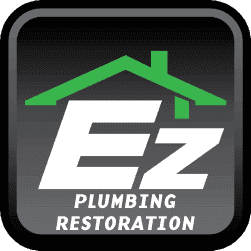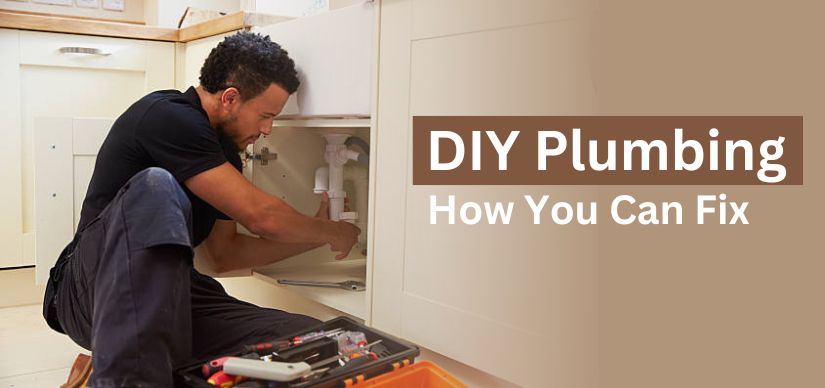DIY Plumbing: What You Can Fix and When to Call a Pro
One of the essential parts of daily domestic life is plumbing, everyone depends heavily on home plumbing systems to keep everything smoothly flowing. But when there is a plumbing glitch, it can be frustrating and you may be tempted to fix the problem yourself instead of employing the services of an expert plumber
Some Plumbing issues can be fixed by a DIY approach, but there are times when it is wise to call the pros to handle the problem. This article is going to discuss what you can fix yourself when there is a plumbing issue and what you need to leave to the pros, a particular focus will be on plumbers in Fullerton, CA.
What is DIY plumbing?
DIY plumbing refers to plumbing tasks that homeowners can perform on their own to address simple problems without hiring a qualified plumber.DIY plumbing projects can include everything from fixing a leaky faucet or toilet to unclogging a drain.
In addition to being a fun and rewarding way for homeowners to learn new skills and take charge of their home maintenance, DIY plumbing is frequently viewed as a cost-effective solution for simple plumbing problems.
But it’s important to understand when a plumbing problem calls for a professional plumber’s assistance, as attempting to fix more complicated problems on your own can result in further damage and even dangerous circumstances.
Common DIY Plumbing Issues
A faulty Showerhead
Many homeowners can complete a common DIY plumbing project like repairing a leaky showerhead or replacing a broken one without the aid of a licensed plumber.Even though it can be a frustrating issue, a leaky showerhead is frequently the result of a worn-out washer or seal that needs to be replaced.
To halt the flow of water and extract the showerhead, it is necessary to turn off the water supply, and replace any broken parts with new ones in order to fix a leaky showerhead. As an alternative, changing a broken showerhead is a fairly easy process that only requires removing the old showerhead and installing a new one.
While replacing a broken showerhead or repairing a leaky one is a DIY project, it’s crucial to have the right equipment, materials, and safety precautions to prevent further harm or injury.
Clogged Drains
Plumbing problems like clogged drains are frequent and frequently attempted DIY fixes. A plunger, a plumbing snake, or a homemade vinegar and baking soda solution are just a few of the ways to unclog a drain. A plumbing snake can be used to clear out more difficult clogs, while plungers are effective for clearing minor sink or toilet clogs.
A clogged drain can also be cleared using a solution of vinegar and baking soda. But if the obstruction is severe or the do-it-yourself solutions fail, it’s time to call a plumber. Self-destructive attempts to remove a major clog can cause more expensive damage to your plumbing system.
Leaky Faucets
Another common plumbing problem that can be resolved with some basic DIY skills is a leaky faucet. A worn-out washer or O-ring, which is easily replaceable, is typically the cause of a leaky faucet. Remove the handle from the problematic faucet, turn off the water supply, replace the worn-out washer or O-ring, and the leak will be fixed.
However, it’s best to call a plumber if you’re not confident handling plumbing tasks or if the leaky faucet keeps happening. A persistent leaky faucet can lead to water damage and higher water bills, so it’s important to have it fixed as soon as possible.
Running Toilets
A frequently occurring problem in plumbing that most people are accustomed to is a toilet that continually runs. A malfunctioning flapper valve or float is typically to blame for a running toilet and is easily replaceable. Turn off the water supply to the toilet, take off the tank lid, and replace the broken flapper valve or float to stop a running toilet.
It’s time to call a reputable plumber if the running toilet keeps happening or if you don’t feel confident handling plumbing issues. Water damage and higher water bills can result from a running toilet’s significant water waste.
When to Call a Professional Fullerton Plumber
Sewer Line Issues
Problems with sewer lines can be messy and unpleasant, and trying to fix them on your own can be risky. Tree roots, clogs, corrosion, and other factors can all lead to sewer line problems. Slow drains, unpleasant odors, and backed-up sewage are all indicators of sewer line problems.
It is best to call a qualified plumber if you think you may have a problem with your sewer line. Sewer line problems need specialized tools and knowledge to resolve, and attempting to do so yourself can result in further damage and health risks.
Burst Pipes
A skilled plumber must respond right away to a emergency plumbing service fullerton involving burst pipes. Freezing temperatures, corrosion, or high water pressure can all result in burst pipes.Reduced water pressure, water damage, and damp or discolored walls or ceilings are all indications that you have burst pipes.
Turn off the water supply to your house if you think you have a burst pipe, and call a plumber right away. Home water damage and additional damage can result from attempting to repair a burst pipe yourself.
Gas Line Issues
Gas line problems can be dangerous and serious, and trying to fix them on your own can be fatal. Gas smells, hissing sounds near gas appliances, and trouble lighting gas appliances are all indications that there are problems with the gas lines.Gas line problems can be caused by leaks, damage, or corrosion.
You must contact a qualified plumber in Fullerton right away if you think you may have a gas line issue. Explosions, fires, and other potentially fatal situations can result from attempting to fix gas line issues without the proper tools and knowledge.
Water Heater Issues
Water heater problems can be challenging to identify and resolve, and attempting to do so yourself can result in further harm and danger. Sediment buildup, malfunctioning thermostats, and damaged heating elements are just a few of the potential causes of water heater problems.
Insufficient hot water, unpleasant odors, and water leaks are all indications of a malfunctioning water heater. It’s best to call a reputable plumber if you think you may have a problem with your water heater. Repairing a water heater yourself can result in additional damage and danger and requires specialized tools and knowledge.
Benefits of Calling in a Professional Fullerton Plumber
While it may be tempting to try and fix plumbing issues yourself, calling in a professional Fullerton plumber has several benefits.
Expertise and Experience
Professional plumbers have the expertise and experience to diagnose and fix plumbing issues quickly and efficiently. They have specialized equipment and training to handle even the most challenging plumbing issues, saving you time and money in the long run.
Safety
Plumbing issues can be dangerous, particularly when it comes to gas line issues. Fullerton plumbers have the training and equipment to handle these issues safely, protecting you and your family from potential hazards.
Quality Workmanship
Professionals take pride in their work and provide quality workmanship. They use high-quality materials and equipment to ensure that your plumbing system functions efficiently and effectively.
Cost-Effective
While you may be tempted to try and fix plumbing issues yourself to save money, DIY fixes can often lead to further damage and costly repairs. Calling in a professional plumber may cost more upfront, but it can save you money in the long run by preventing further damage and more expensive repairs.
Conclusion
While some plumbing issues can be fixed with a little DIY know-how, there are times when it’s best to call in a professional plumber in Fullerton. Sewer line issues, burst pipes, gas line issues, and water heater issues all require specialized equipment and expertise to fix, and attempting to fix them yourself can be dangerous and costly.
By calling in a professional plumber, you can ensure that your plumbing system functions efficiently and effectively, protecting your home and family from potential hazards.


